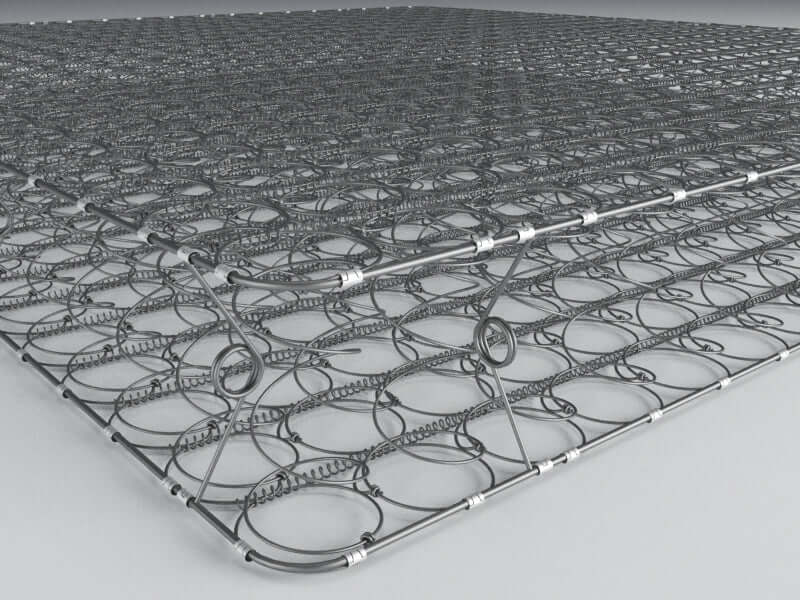Open coil, also known as Bonnell spring, is one of the oldest and most commonly used types of spring systems in mattresses. In this blog, we're going to explore what open coil technology is and discuss its advantages and potential downsides.
Decoding Open Coil: What Is It?
Open coil technology involves numerous interconnected springs, typically made of steel, which work collectively to provide support. Each spring moves as one unit, so the pressure applied to one area of the mattress can affect other areas as well.
The Characteristics of Open Coil
Open coil mattresses have a signature 'springy' feel, with a bouncier and more responsive surface compared to memory foam or latex. This technology has been a mainstay in the mattress industry due to its affordability and durability.
The Pros of Open Coil
Open coil technology presents several advantages that contribute to its continued presence in the market.
Affordability
Open coil mattresses are typically more affordable than other types, making them an excellent choice for those shopping on a budget.
Durability and Support
Due to the robust steel coils, these mattresses are usually quite durable and can offer excellent support, particularly for those who prefer a firmer sleep surface.
Breathability
Open coil mattresses often provide better airflow compared to memory foam or latex mattresses, leading to cooler sleep.
The Cons of Open Coil
Despite its advantages, there are potential downsides to open coil technology that consumers should be aware of.
Poor Motion Isolation
Open coil mattresses, due to the interconnected nature of the springs, do not absorb movement as well as pocket spring or memory foam mattresses. This can lead to disturbances for couples when one person moves or gets out of bed.
Uneven Weight Distribution
While open coil mattresses can provide good overall support, they might not contour to the body as closely as other types. This could result in uneven weight distribution and potential discomfort over time.
Lifespan
While open coil mattresses are generally quite durable, their lifespan might be shorter compared to higher-end memory foam or latex mattresses. Over time, the springs may lose their firmness and lead to sagging.
Conclusion
Open coil technology, with its affordability and supportive qualities, offers a traditional 'springy' feel that some sleepers prefer. However, considerations such as poor motion isolation, uneven weight distribution, and a potentially shorter lifespan might cause some consumers to explore other options. As with any significant purchase, it's crucial to weigh these pros and cons and consider personal needs and preferences when choosing a mattress.


